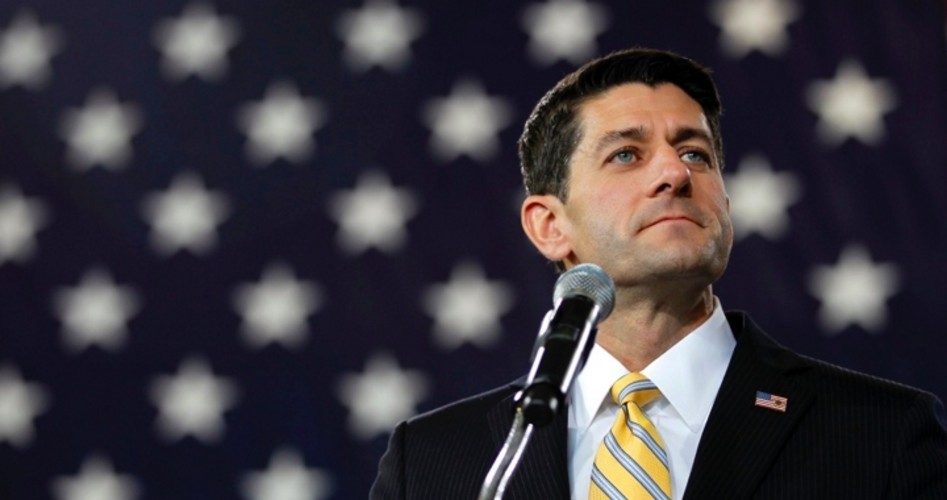
It’s official: Wisconsin congressman and erstwhile vice-presidential candidate Paul Ryan is entering the race for House Speaker, and now appears to be the favorite to replace outgoing Speaker John Boehner. The supposedly reluctant Ryan, who has insisted on full support of the entire Republican majority, on time to spend with family, and on immunity from no confidence votes once Congress is in session, has now gained enough support from members of the House’s Freedom Caucus that he is confident of being able to build consensus and advance his agenda if elected.
“I believe we are ready to move forward as a one, united team. And I am ready and eager to be our speaker,” Ryan wrote today to his fellow Republican congressman. The nomination for a new Speaker is now scheduled for October 28, with a full House vote the following day. At this point, despite the lingering reluctance of some members of the Freedom Caucus (like Justin Amash, Thomas Massie, and Raul Labrador, all staunch proponents of limited government), House Republicans appear to have been worn down by the discord engendered by a House Republican establishment determined to replace John Boehner with someone just as willing to play the traditional role of reluctant me-tooism espoused by generations of country club Big Government Republicans.
Ryan’s credentials as a champion of small government are less than stellar, his primary concern seemingly being to get along with Big Government socialists across the aisle who are not interested in meaningful compromise but are happy to take advantage of Republican accomodationism. In The New American’s “Freedom Index,” a congressional scorecard based on the U.S. Constitution, his cumulative score is an unimpressive 58 percent.
The saga of Paul Ryan’s ascent to consideration for the most powerful position in the House — and arguably in all of Washington — shows beyond any doubt that, despite the rise of a significant number of true champions of the limited constitutional government in both the House and the Senate, the entrenched power elites still very much set the Republican agenda. John Boehner’s first choice as successor, Kevin McCarthy, was indistinguishable from Boehner and very much at odds with the so-called “extremists” of the Freedom Caucus. When he was forced to step aside, presumably in consequence of ill-considered words about the Benghazi investigation, influential congressional Republicans and their myrmidons in the mainstream media immediately began clamoring for Paul Ryan.
It was a well-choreographed performance, with Ryan cannily playing the part of the reluctant Everyman candidate to force concessions from the genuinely principled among the Republican rank and file. Ryan’s election as Speaker now seems virtually assured, and with it a continuation of the deliberately defeatist tactics Republicans have been using for generations.
The lesson? While progress had been made, in both the Senate and the House, from the days when former congressman Ron Paul was a solitary voice in the wilderness, we have a long way to go to elect enough Justin Amashes and Thomas Massies to wrest agenda-setting power from the Republican Old Guard.
Photo of Rep. Paul Ryan: AP Images
Related articles:
Paul Ryan, Speaker of the House?
Paul Ryan’s Prospects for Speaker Depend on the Freedom Caucus



